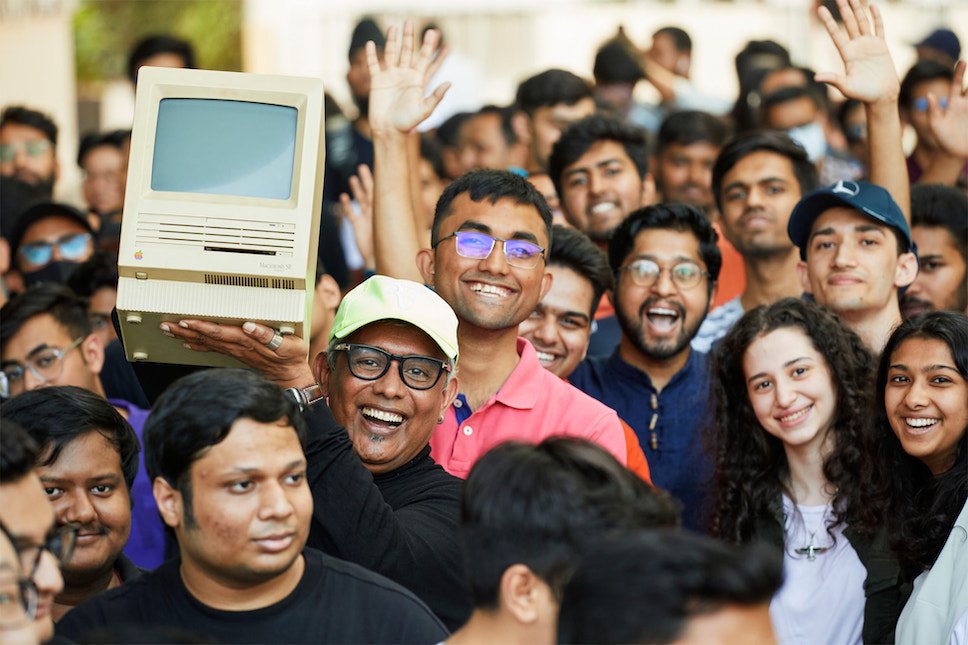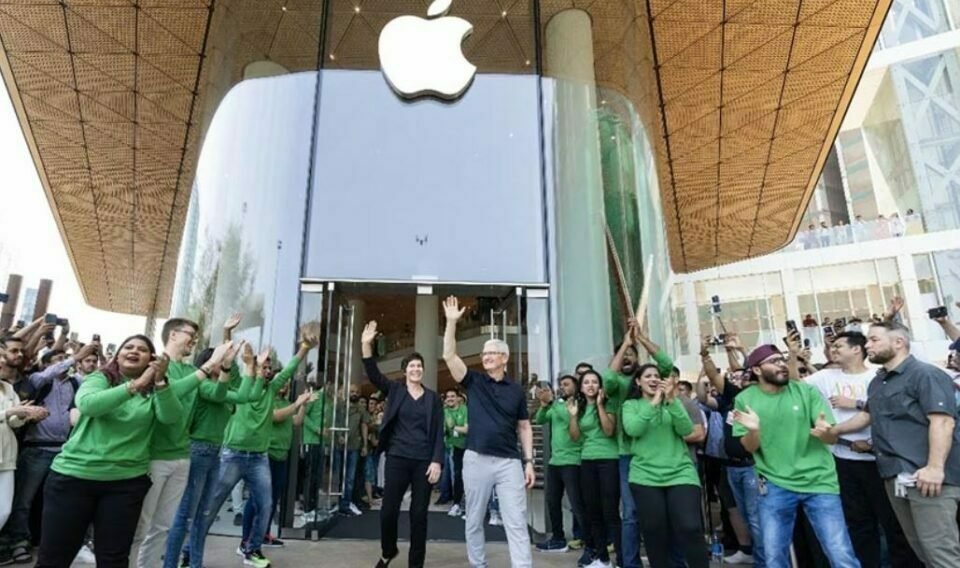The opening of Apple’s first physical stores in India this week by CEO Tim Cook represents a significant achievement for the iPhone manufacturer in the second-largest smartphone market in the world.

At the business’s new Mumbai location, which opened on Tuesday, Cook was spotted personally greeting clients as staff members applauded and applauded. On Thursday in Delhi, a second store launching, he is anticipated to make an appearance.
The decision was made as the most valuable corporation in the world continued to shift its focus to India, seeing possibilities there for both a consumer market and a manufacturing base.

In a statement released on Monday, Cook referred to Apple’s continued growth in the nation, noting that the company’s debut of brick-and-mortar stores coincided with its 25th year of operation.
He said, “India has such a wonderful culture and an amazing energy.” “We’re excited to build on our long history, supporting our customers, investing in local communities, and collaborating to build a better future,” the company stated.In a separate statement on Monday, Apple (AAPL) provided a sneak preview of its new Mumbai location, which is housed on land owned by Mukesh Ambani’s business Reliance Industries.

The store is touted by the firm as being among its “most energy-efficient” globally, with solar panels enabling it to run entirely on renewable energy.
A request for additional comment and information about Cook’s visit received no response from Apple.
goals in retail
Although Apple (SSNLF) is the world’s second-largest smartphone manufacturer, its 6% market share in India is still negligible.
It is dwarfed by the top five suppliers in the nation, which include Xiaomi, Vivo, and Samsung, two manufacturers of Chinese smartphones. Many customers in the nation believe Apple items to be overpriced.
The most recent government figures show that the average monthly pay for normal full-time employees in India is 18,585 rupees ($226.5). For reference, the starting price of an iPhone 14 is 79,900 rupees ($973.6), while that of the more affordable iPhone SE is 49,900 rupees ($608.2).
But as it expands its retail presence there and more consumers choose high-end devices, Apple’s position is anticipated to strengthen.Hanish Bhatia, associate director of Counterpoint Research, believes that India offers opportunities for businesses due to its sizable population, growing middle class, and potential for growth from consumers who are anticipated to convert from feature phones to smartphones.
But up until recently, Apple had only been able to sell its goods there via the internet or through independent retailers.
That’s because the business, along with other foreign merchants, were prohibited for years from opening up shop in the nation unless at least 30% of their raw supplies came from domestic sources, forcing them to rely on local partners. 2019 saw lessening of restrictions by the Indian government.
Apple opened an online store in India in 2020, enabling people to purchase its goods and, for the first time, customize some devices.The Covid-19 pandemic interfered with Apple’s initial plans to launch its first physical location in the nation in 2021.
According to Sanyam Chaurasia, a mobility analyst at Canalys, the stores would enable Apple to place all of its products “under one roof” and influence more customers to make purchases.
According to him, brick-and-mortar retailers still dominate the high-end smartphone market, where Apple competes, where customers can physically touch and feel the phone.
Senior analyst at Counterpoint Research Prachir Singh added that the new stores’ locations were crucial, noting that Delhi and Mumbai are the top two Indian markets for Apple, respectively.
According to Singh, Mumbai, for instance, typically accounts for 10% of all iPhone sales in India.
powerhouse for manufacturing
In 2017, Apple started producing iPhones in India, and since then, it has gradually increased production.
After experiencing supply chain issues in mainland China, where the majority of its smartphones are made, it has noticeably increased production there in recent months.
According to Counterpoint, Apple dramatically increased its Indian exports last year with a 65% increase in the number of iPhones produced and delivered from the nation. The company claimed that the fourth quarter of 2022 saw Foxconn and Wistron, two of Apple’s major contract manufacturers, expand at the fastest rate among Indian manufacturers.
Foxconn CEO Young Liu visited India for a week earlier this month and had a meeting with Prime Minister Narendra Modi.
In a statement released on Monday, Apple claimed the business was collaborating with suppliers to “produce a growing number of components” in addition to its iPhone assembly lines.
Foxconn’s corporate offices will open in New Taipei City, Taiwan, in August 2022.
Foxconn, an Apple supplier, is looking for EV and semiconductor business in India.
According to the statement, “Apple supports hundreds of thousands of jobs across the country through its work with Indian suppliers of all sizes.”
More than 1 million developer jobs are now supported across the country by the company’s growing mobile apps division, it was claimed.
Apple’s stepped-up activities in India are a part of a larger trend of businesses shifting their manufacturing away from China.
According to Counterpoint, the south Asian country has dramatically increased its proportion of the world’s smartphone production in recent years, going from less than 10% in 2016 to roughly a fifth this year.




